Wanna know some sleep facts? As we close our eyes and surrender to the embrace of darkness, sleep becomes a sanctuary where our bodies and minds find solace. It is a time when our weary spirits are rejuvenated, and our dreams take flight in the depths of our subconscious.
But how much do we truly know about the mysteries that unfold within the realm of sleep? In this discussion, we will uncover fifteen fascinating sleep facts that will leave you questioning everything you thought you knew about this essential aspect of our lives.
From the surprising number of hours we should be sleeping to the impact of physical activity on our slumber, prepare to be captivated by the enchanting world of sleep facts.
So, join us as we unlock the secrets of the night and embark on a journey of discovery that will forever change the way you view those precious hours of rest.
Recommended Hours of Sleep
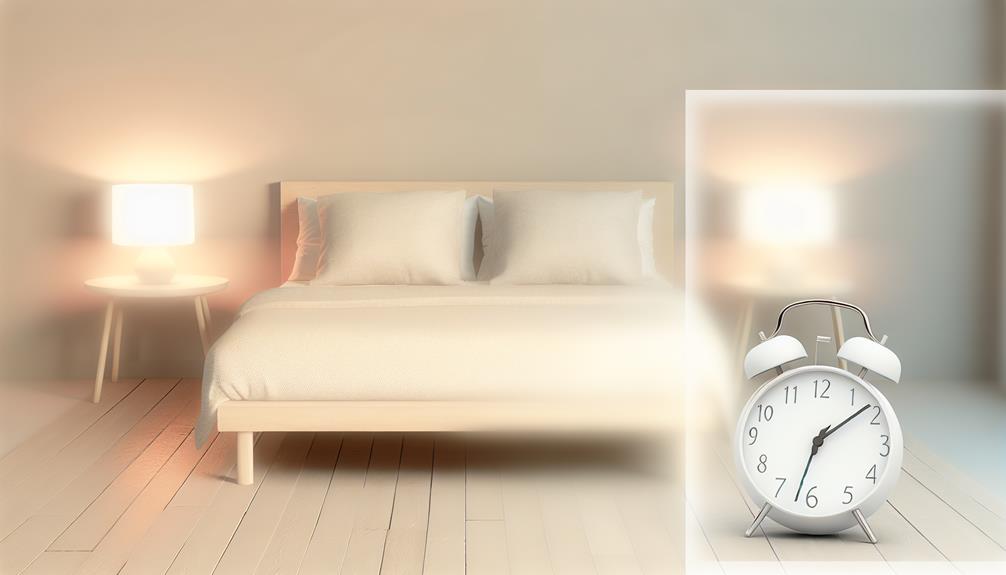
Getting the right amount of sleep is crucial for our overall health and well-being. Recommended hours of sleep vary depending on the individual, but for healthy adults, it’s generally recommended to get between 7 and 9 hours of sleep each night.
Some people may function well with less sleep, around 5 or 6 hours, while others may require more, around 10 or more hours. It’s important to listen to our bodies and prioritize sleep accordingly.
Lack of sleep can have negative effects on our physical and mental health, leading to decreased cognitive function and increased risk of chronic diseases. Consistently getting less than 7 hours of sleep can have adverse effects on our well-being, so it’s important to make sleep a priority and strive for quality rest.
Sleep and REM
During the sleep cycle, dreams were previously believed to only occur during Rapid Eye Movement (REM) sleep. However, recent research suggests that dreams can actually happen throughout the entire sleep cycle, including non-REM sleep. This means that our dreams aren’t limited to just the REM stage.
It’s fascinating to think that we may be dreaming even when our eyes aren’t rapidly moving. The dreams experienced during non-REM sleep may be different from those during REM sleep, with varying themes and intensity.
REM sleep is crucial for memory consolidation and emotional regulation, so disruptions in this stage can lead to cognitive impairment and mood disorders. Understanding the role of REM sleep in our dreams can help us appreciate the complexity of our sleep cycles and the importance of getting quality rest.
Physical Activity and Sleep
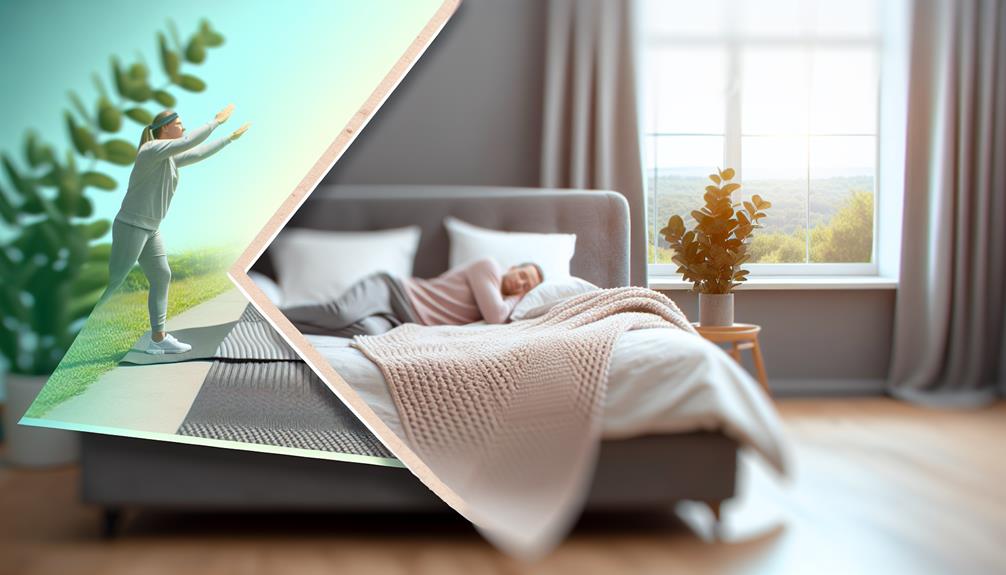
As we explore the fascinating world of sleep, we now turn our attention to the impact of physical activity on our sleep quality and overall well-being. Engaging in physical activity can greatly improve our sleep. Here are sleep facts and three reasons why:
- Morning exercise: Starting our day with physical activity can promote better sleep at night. It helps to regulate our body’s internal clock, making it easier to fall asleep and wake up refreshed.
- Timing matters: Exercising in the evening may interfere with our sleep. It can increase our heart rate and body temperature, making it harder to unwind and fall asleep. Adjusting the timing of our exercise to earlier in the day can help improve our sleep.
- Consistency is key: Regular physical activity is associated with better overall sleep patterns. When we make exercise a part of our daily routine, it helps regulate our sleep-wake cycle and promotes restful sleep.
Sleep Delay and Prioritization
Delaying sleep can have detrimental effects on our physical and mental health, making it crucial to recognize the importance of prioritizing sufficient rest. Humans are the only mammals that willingly delay sleep, while other mammals prioritize getting sufficient sleep when needed. This behavior can have negative consequences on our well-being. To emphasize the significance of sleep prioritization, consider the following table:
| Effects of Sleep Delay |
|---|
| Decreased cognitive function |
| Increased risk of chronic diseases |
| Impaired memory and learning |
| Mood disturbances |
| Weakened immune system |
As we can see, the consequences of delaying sleep go beyond feeling tired. It affects our ability to think, learn, and regulate our emotions. It also puts us at a higher risk for developing chronic illnesses. Recognizing the importance of sleep and establishing a consistent sleep schedule are essential steps towards prioritizing our well-being.
Sleep Facts- Stages
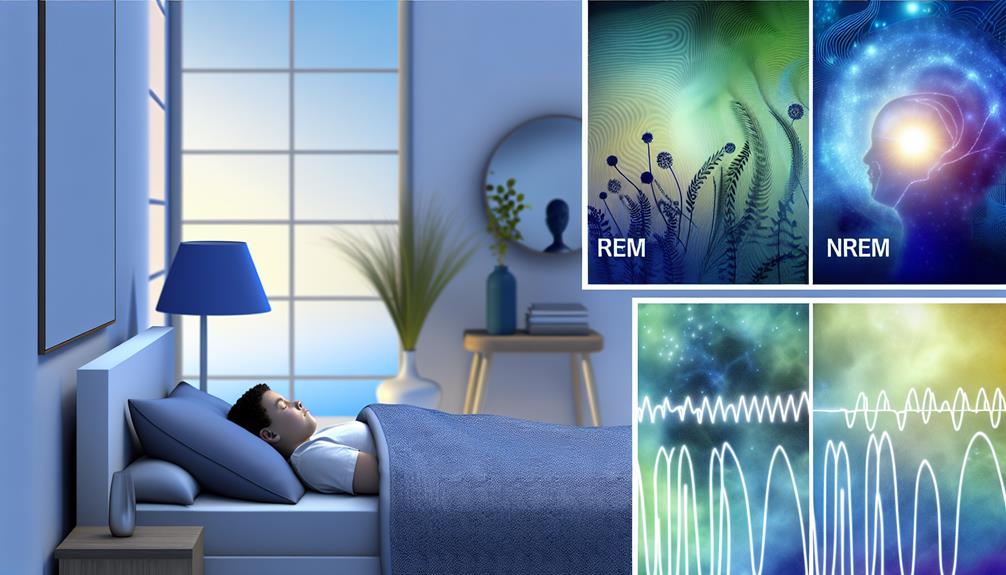
Have you ever wondered what happens to your brain and body when you sleep? Understanding the different stages of sleep can shed light on this fascinating process.
Here are three key things to know about sleep stages:
- Sleep Cycle: As you sleep, your body goes through a series of stages that repeat throughout the night. These stages include light sleep, deep sleep, and REM (Rapid Eye Movement) sleep.
- Functions of Each Stage: Each sleep stage serves a unique purpose. Light sleep helps to relax your body and prepare it for deeper sleep. Deep sleep is essential for physical restoration and growth. REM sleep is when dreaming occurs and plays a crucial role in memory consolidation and emotional regulation.
- Cycling Through sleep facts: Initially, you go through the sleep stages in order. However, as the night progresses, you tend to cycle through specific stages. This cycling is essential for maintaining optimal sleep quality.
Understanding sleep stages can provide valuable insights into how to improve your sleep quality and overall well-being. So, next time you drift off to dreamland, remember the intricate dance your brain and body are performing.
Sleep Deprivation
Sleep deprivation takes a toll on both our physical and mental health, leaving us vulnerable to a range of negative consequences. When we don’t get enough sleep, our bodies and minds suffer. We become more prone to accidents, our cognitive function declines, and our risk of chronic diseases increases.
But it’s not just our physical health that’s affected – our mental well-being is also at stake. Sleep deprivation can lead to mood disorders, anxiety, and depression, making it harder for us to find liberation and joy in life.
It’s essential to prioritize adequate sleep and establish healthy sleep habits. By giving ourselves the rest we need, we can protect our physical and mental health, and ultimately, live a more fulfilling and liberated life.
Light Exposure and Sleep
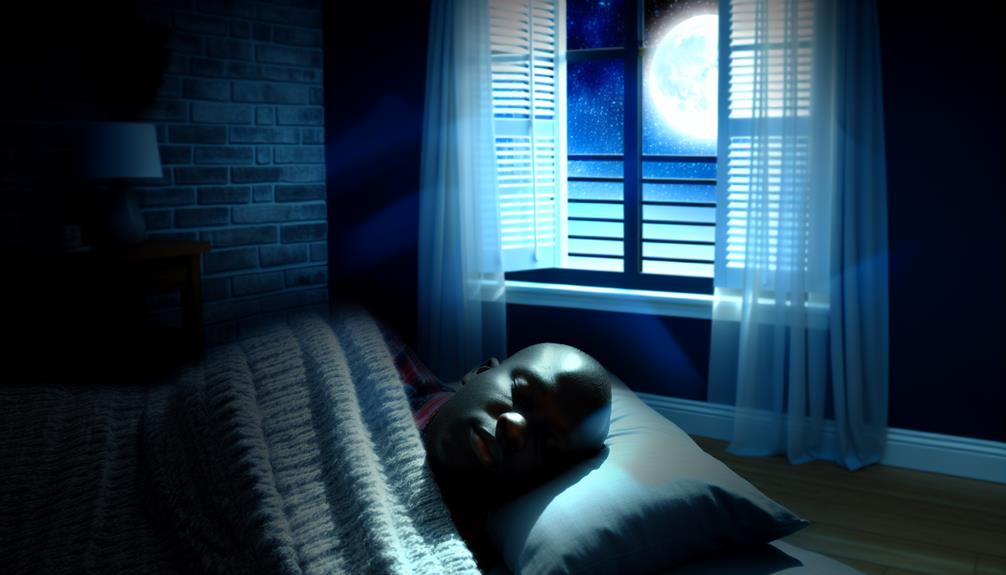
Exposure to light can significantly impact the quality of our sleep, making it essential to create a dark and conducive sleep environment.
Here are three reasons why light exposure is crucial for a good night’s sleep:
- Light in the bedroom, such as from alarm clocks or nightlights, can disrupt sleep and hinder our ability to fall asleep and stay asleep. Using a high-quality silk sleep mask can effectively block out light and improve sleep quality.
- Blue light, emitted by screens such as smartphones and tablets, can interfere with our sleep-wake cycle. Limiting screen time before bed is recommended to avoid exposure to blue light and promote better sleep.
- Creating a dark sleep environment can enhance sleep quality. This can be achieved by using blackout curtains or shades to block out external light sources and creating a peaceful sanctuary for rest and rejuvenation.
Drowsy Driving
Drowsy driving poses a serious threat on the roads, contributing to a significant number of car accidents each year. It’s a chilling reality that around 100,000 crashes are caused by drowsy driving annually. Shockingly,sleep facts show approximately 7% of American adults admit to falling asleep behind the wheel due to lack of sleep.
The consequences of drowsy driving can be devastating, with lives forever altered or lost. However, there’s hope. By prioritizing sufficient sleep, we can prevent these accidents and protect ourselves and others on the road. It’s crucial that we recognize the importance of rest and make sleep a non-negotiable priority.
Let’s liberate ourselves from the dangers of drowsy driving by ensuring we’re well-rested before getting behind the wheel. Safety should never be compromised.
Sleep and Health Problems
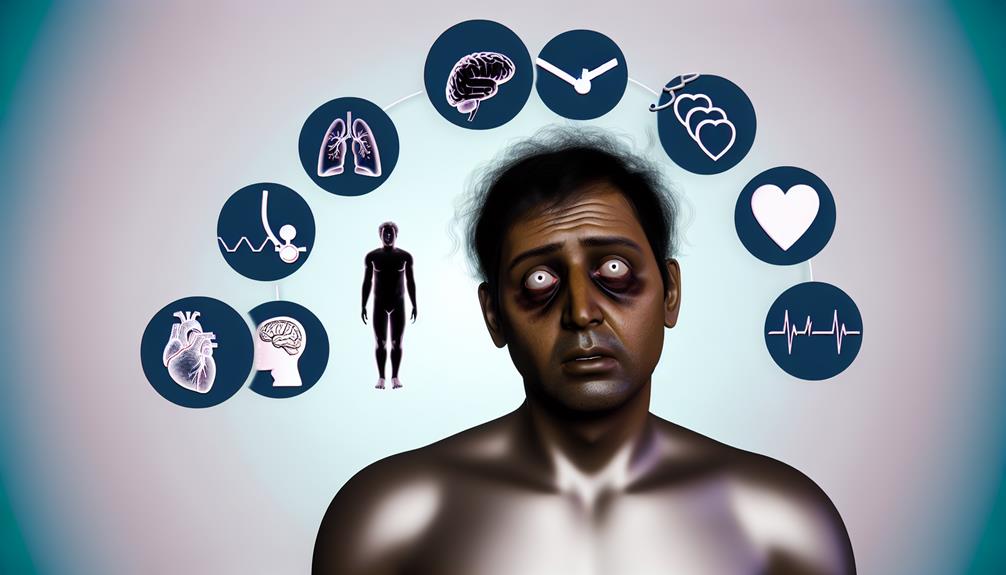
Prioritizing adequate sleep is crucial for maintaining overall health and well-being, as chronic sleep deprivation increases the risk of various health problems.
Here are some important sleep facts to consider:
- Adults who consistently sleep less than 7 hours per night have an elevated risk of developing serious health issues, including diabetes and mental health disorders.
- Individuals who work night shifts or irregular hours face a higher risk of cardiovascular diseases and other health problems.
- Sleep plays a vital role in immune function, metabolism, and cognitive function.
Sleep Apnea
Sleep apnea is a common sleep disorder that affects the quality of breathing during sleep. It’s characterized by pauses in breathing, which can last for a few seconds to a few minutes. These pauses can occur multiple times throughout the night, leading to fragmented sleep and decreased oxygen levels in the body.
Sleep apnea isn’t only disruptive to sleep, but it can also have serious health consequences. It’s associated with an increased risk of cardiovascular diseases, such as high blood pressure and heart attacks. Additionally, sleep apnea has been linked to poor overall health and decreased quality of life.
If you suspect you may have sleep apnea, it’s important to seek medical evaluation and treatment to improve your sleep quality and overall well-being.
Sleep Environment
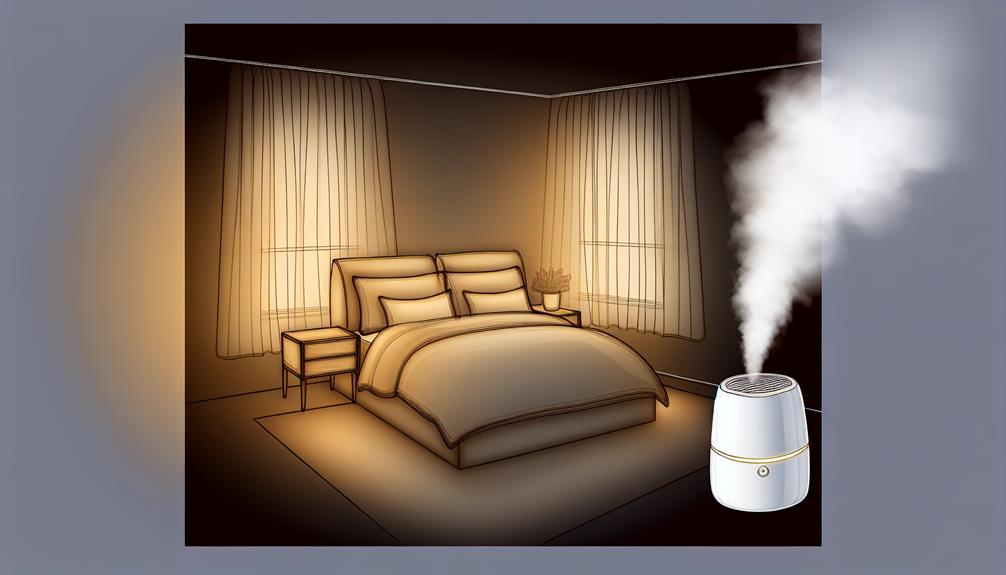
As we continue our exploration into the realm of sleep, let’s now turn our attention to the crucial role that the sleep environment plays in ensuring a restful and rejuvenating slumber.
- Darkness: Sleep facts show that sleeping in a dark room promotes better sleep by enhancing melatonin production, the hormone that regulates sleep-wake cycles. Consider using blackout curtains or a sleep mask to block out any unwanted light.
- Comfort: Maintaining a comfortable room temperature facilitates optimal sleep. A cool room, around 65 degrees Fahrenheit, is often recommended for a good night’s rest. Additionally, investing in a supportive mattress and cozy bedding can make a significant difference in your sleep quality.
- Noise control: Creating a quiet sleep environment can help minimize disturbances. Consider using earplugs or a white noise machine to block out unwanted sounds, ensuring a peaceful atmosphere for sleep.
Dreaming During Non-REM Sleep
During non-REM sleep, our minds continue to wander and dream, revealing a fascinating world of subconscious thoughts and experiences. It’s like exploring an uncharted territory within ourselves, where our imagination runs wild and our deepest desires unfold.
These dreams during non-REM sleep may not be as vivid or memorable as those during REM sleep, but they still hold significant meaning. They provide a glimpse into our innermost thoughts, fears, and aspirations, giving us a chance to understand ourselves on a deeper level.
It’s during this stage of sleep that our minds process information and emotions, helping us make sense of our day-to-day experiences. So, even though we may not remember these dreams, they play a crucial role in shaping who we are and how we navigate the waking world.
Morning Exercise and Better Sleep
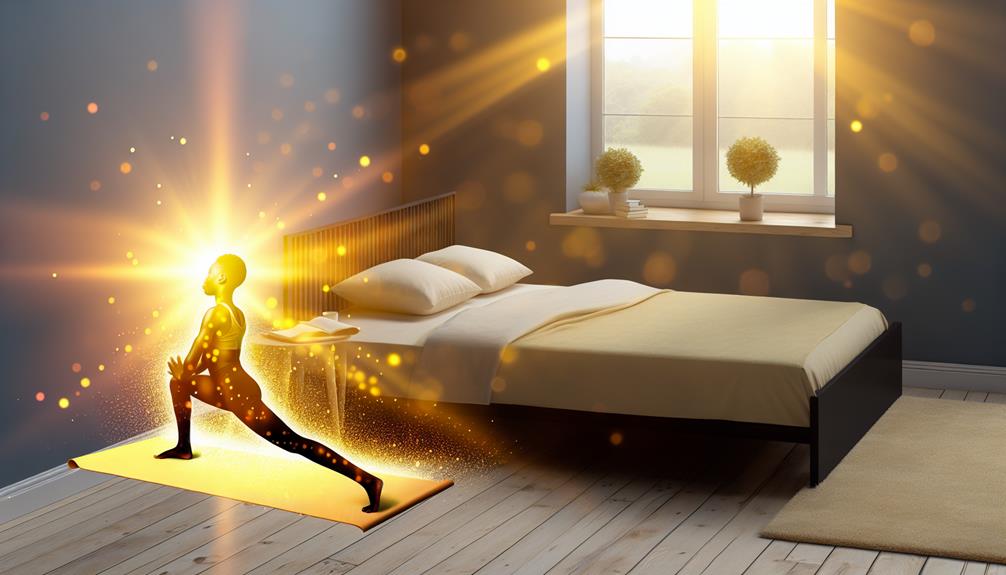
Engaging in physical activity in the morning can significantly improve the quality of your sleep at night. When you exercise in the morning, you kickstart your day with a burst of energy and set yourself up for a restful night’s sleep. Here are three ways morning exercise can benefit your sleep:
- Increased melatonin production:
Physical activity in the morning helps regulate your body’s internal clock, making it easier for you to fall asleep at night. It also boosts the production of melatonin, the hormone that controls sleep and wakefulness.
- Reduced stress and anxiety:
Morning exercise releases endorphins, which are natural mood lifters. By starting your day with a workout, you can reduce stress, anxiety, and restlessness, allowing you to relax and unwind for a better night’s sleep.
- Enhanced sleep efficiency:
Regular morning exercise helps regulate your sleep-wake cycle, making it easier for you to fall asleep and stay asleep throughout the night. It improves your sleep efficiency, ensuring that you spend more time in the restorative stages of sleep, such as deep sleep and REM sleep.
Importance of Consistent Sleep Schedule
Establishing a consistent sleep schedule is crucial for optimizing your sleep quality and overall well-being. When you have a regular sleep routine, your body gets accustomed to a specific sleep-wake cycle, which helps regulate your internal clock. This means that you’ll find it easier to fall asleep and wake up at the same time every day.
Consistency in your sleep schedule allows your body to align with its natural rhythm, promoting better sleep quality and ensuring that you wake up feeling refreshed and energized. Moreover, a consistent sleep schedule helps regulate important bodily functions such as hormone production, metabolism, and immune system function.
Consequences of Sleep Deprivation

Sleep deprivation can have profound and far-reaching consequences on both our physical and mental health. It goes beyond just feeling tired and groggy. Here are three key consequences of sleep deprivation that you should be aware of:
- Impaired cognitive function: Lack of sleep can lead to difficulties with concentration, memory, and problem-solving. It can also affect our ability to make decisions and think creatively. Imagine trying to navigate through a complex problem or come up with innovative ideas when your brain is running on empty.
- Increased risk of chronic diseases: Chronic sleep deprivation has been linked to an increased risk of developing conditions such as obesity, diabetes, and cardiovascular diseases. When we don’t get enough sleep, our body’s hormonal balance is disrupted, leading to metabolic dysregulation and inflammation.
- Negative impact on mental health: various sleep facts show deprivation is closely associated with mental health issues, including depression, anxiety, and mood disorders. It can exacerbate existing mental health conditions or even trigger them. Lack of sleep affects our emotional regulation, making it harder to cope with stress and maintain a positive mindset.
Understanding the consequences of sleep deprivation is crucial for prioritizing adequate sleep and taking steps towards better sleep habits. Don’t underestimate the power of a good night’s sleep – it can truly transform your overall well-being.
Frequently Asked Questions for Sleep Facts
How Does Sleep Deprivation Affect the Immune System?
Sleep facts show sleep deprivation can have a significant impact on our immune system. When we don’t get enough sleep, our immune system becomes compromised, making us more susceptible to illnesses and infections.
Sleep deprivation can affect the production and function of important immune cells, such as T cells and cytokines, which help fight off pathogens. Additionally, lack of sleep can lead to chronic inflammation, which is linked to various health problems.
Prioritizing sufficient sleep is crucial for maintaining a strong and healthy immune system.
Can Exercising at Night Negatively Impact Sleep Quality?
Exercising at night can negatively impact sleep quality. While physical activity is generally beneficial for sleep, exercising too close to bedtime can stimulate the body and make it harder to fall asleep.
It’s best to adjust the timing of exercise to earlier in the day, as morning exercise has been shown to promote better sleep at night.
Prioritizing a consistent sleep schedule and avoiding late-night workouts can help improve overall sleep quality and ensure a restful night’s rest.
What Are Some Strategies for Creating a Conducive Sleep Environment?
Creating a conducive sleep environment is vital for a restful night’s sleep.
We can optimize our sleep space by ensuring it’s dark, as this enhances melatonin production.
Maintaining a comfortable room temperature is also key.
Using a sleep mask made of high-quality silk can effectively block out light and improve sleep quality.
Additionally, limiting screen time before bed and avoiding exposure to blue light can help regulate the sleep-wake cycle.
These strategies can transform your sleep environment into a sanctuary for optimal rest and rejuvenation.
How Does Sleep Apnea Impact Cardiovascular Health?
Sleep apnea, a common sleep disorder, has a significant impact on cardiovascular health. It’s characterized by pauses in breathing during sleep, leading to fragmented sleep and decreased oxygen levels. These factors can contribute to an increased risk of cardiovascular diseases and poor overall health.
Seeking medical evaluation and treatment, such as Continuous Positive Airway Pressure (CPAP) therapy, is crucial for managing sleep apnea and improving sleep quality, ultimately benefiting cardiovascular health.
Are There Any Natural Remedies for Improving Sleep Quality?
There are several natural remedies that can help improve sleep quality.
Some people find relaxation techniques, such as deep breathing or meditation, helpful for winding down before bed.
Creating a calming bedtime routine and maintaining a consistent sleep schedule can also promote better sleep.
Additionally, incorporating various sleep facts to sleep-friendly habits like avoiding caffeine and electronics before bed, and creating a comfortable sleep environment can contribute to a more restful night’s sleep.
Conclusion
In conclusion, sleep isn’t just a luxury, but a necessity for our overall health and well-being. It’s important to prioritize getting enough rest and understanding the science behind sleep.
From the recommended hours of sleep to the different stages and functions of sleep, we’ve explored various sleep facts that everyone should know.
Remember, various sleep facts say consistent sleep schedules, physical activity, and creating a conducive sleep environment are all key factors in ensuring a good night’s rest.
So, let’s make sleep a priority in our lives and reap the benefits of a well-rested mind and body.





